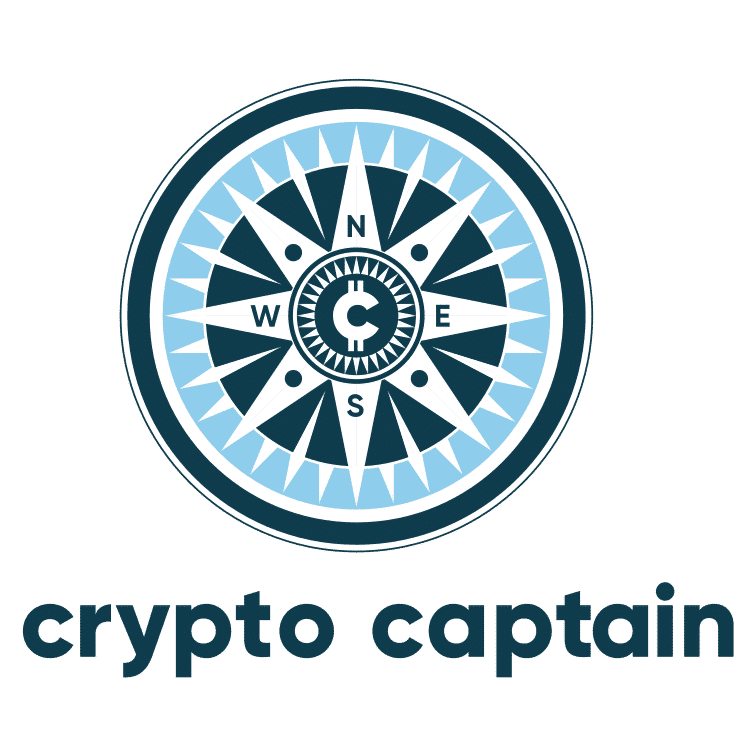The Crypto Assets Conference (CAC) in Frankfurt is one of the biggest blockchain events in Germany. It stands tall next to the BLOCKCHANCE conference in Hamburg and the Blockchain Technology Conference in Berlin and this year marks the third year since its establishment.
The host of the conference is the Frankfurt School of Finance & Management, which offers a modern venue with good facilities to accommodate the 500+ participants.
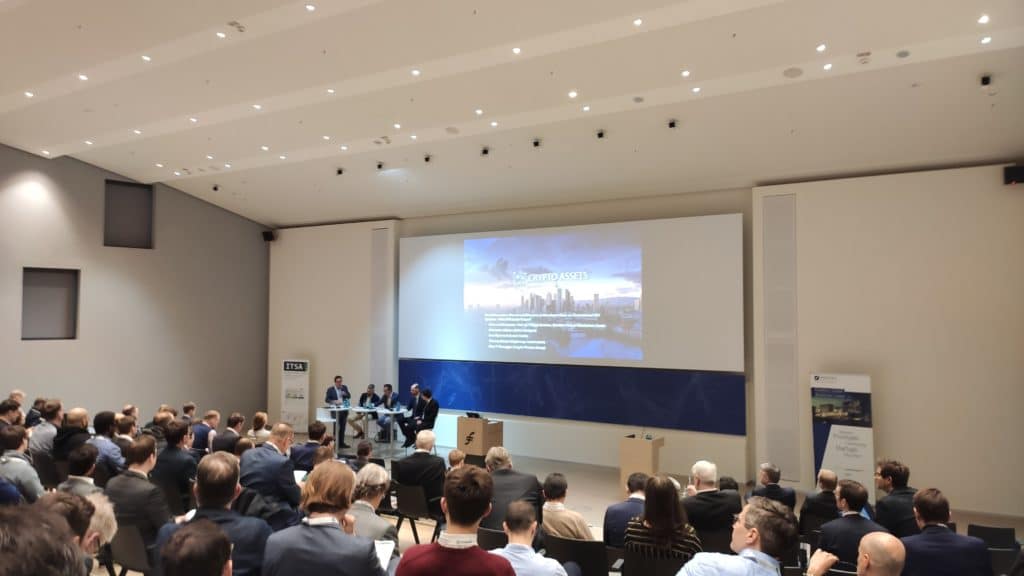
Unlike other blockchain events in Germany, CAC heavily emphasizes on the investor’s perspective. This is apparent from the choice of speakers and the topics discussed.
Panel participants are key market players, representing regulatory bodies, consulting firms, commercial banks, trading venues, venture capital funds, and blockchain startups.
Due to unforeseen circumstances, surrounding the spread of the COVID-19 in Europe, some prominent speakers canceled at the last minute. However, in the little time that they had the conference organizers managed to find replacements and the conference took part.
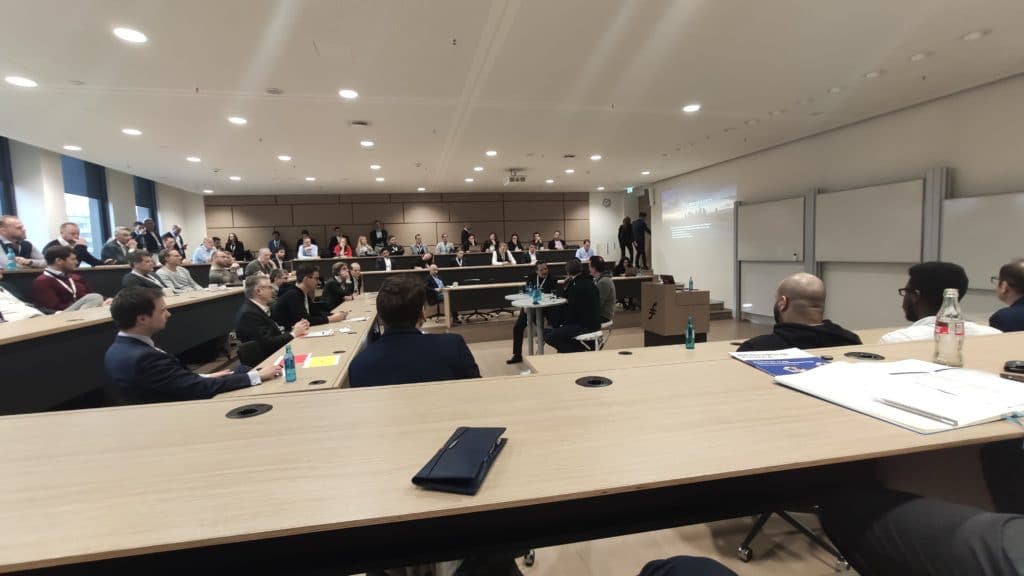
Regulation and CUSTODY
A hot topic this year was blockchain regulations and in particular crypto custody.
The debate was sparked by a law, passed by Germany’s parliament in early December. According to the new law banks and other financial institutions are now legally allowed to offer cryptocurrencies alongside stocks, bonds and other securities to their customers.
The consensus of the panel discussions was that blockchain-related financial providers need regulatory clarity and trust in the regulatory bodies in order to provide their service to the public. In this regard, Lichtenstein was often used as an example for its favorable regulatory climate.
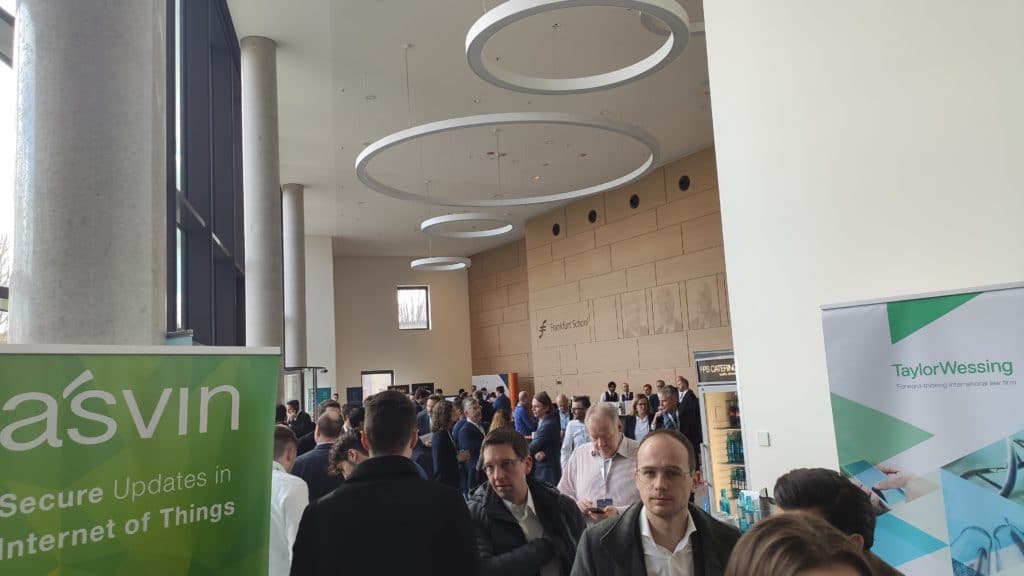
DECENTRALIZED FINANCE
Another hot topic was decentralized finance. A distinct feature of decentralized finance is that the middleman in all financial transactions is cut out.
By cutting out the middleman, transaction-related fees can be reduced. Additionally, anyone in the world with internet connection has better access to financial services.
A key infrastructure for decentralized finance is stable coins such as the Dai by MakerDAO. It comes with all the benefits of cryptocurrencies such as decentralization and smart contracts while dealing with their volatile nature by being pegged to a fiat currency.
For example, holders of Dai can lend their tokens to others through the Oasis platform and earn up to 8% annual interest.
For now, decentralized finance is still in its early stages and is only being used by crypto “whales”.
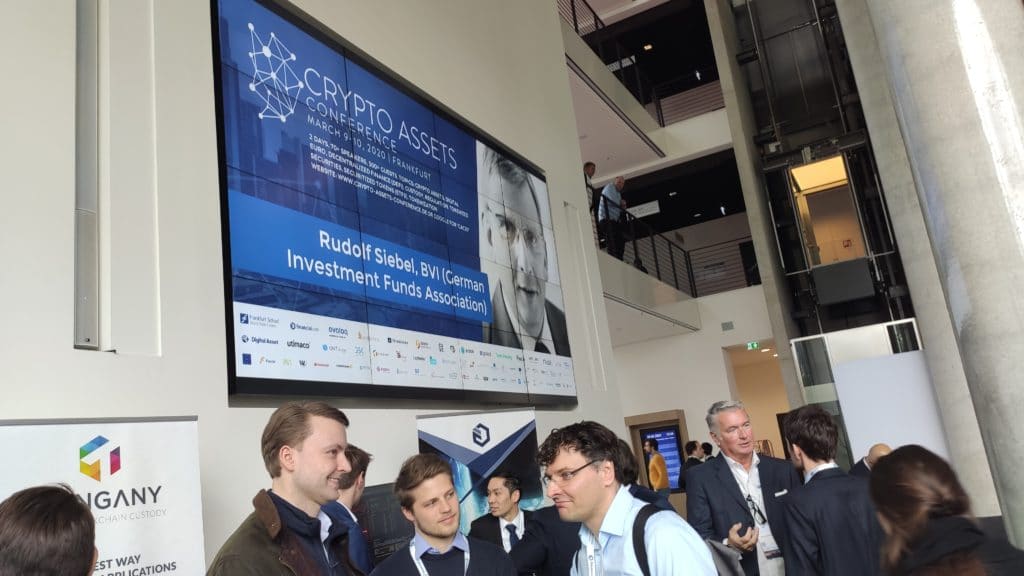
CRYPTO Investment products
Looking at the investor’s perspective, one can see progress on both the regulatory and the asset management side which opens the door of investor-friendly products to the masses. Keywords here are Security Token Offerings (STOs) and Exchange Traded Products (ETPs).
For example, decentralized solutions by Brickmark and RTX21 allow customers to invest in prime European real estate regardless of their location and without the need for a notary.
Other examples include:
- An actively managed ETP by Invao, which provides exposure to 140 tokens
- An ETP by Iconic Funds listed on the Malta Stock Exchange, which represents a basket of the top 20 tokens by market capitalization
- 11 ETPs by Amun listed on the SIX Swiss Exchange, which track the performance of the top tokens by market capitalization.
One property that all these products have in common is that they are all a type of an asset-backed bond. Currently, this is the only way to get a regulatory approved security instrument, tracking the performance of a token.
CONCLUSION
The Crypto Assets Conference is a unique opportunity to meet the people behind the blockchain revolution as well as the people, which would most likely open the doors to it to the masses.
The conference organizers were a big supporter of the networking aspect of the conference.
Via a WhatsApp group, participants could get timely updates about the conference as well as interact with one another.
Participants could also complete a survey and share their contact details as well as their interests and expectations with the rest.
These actions brought a certain degree of familiarity and eased the interactions at the conference.
In this regard, I had interesting conversations with the representatives of two investment funds, who were at the conference.
They confirmed what was already discussed at the panels. Namely due to regulatory restrictions investment funds are still not allowed to invest in the blockchain.
However, they both agreed that the new technology is really promising and they will be looking to get into it as soon as it becomes available.
